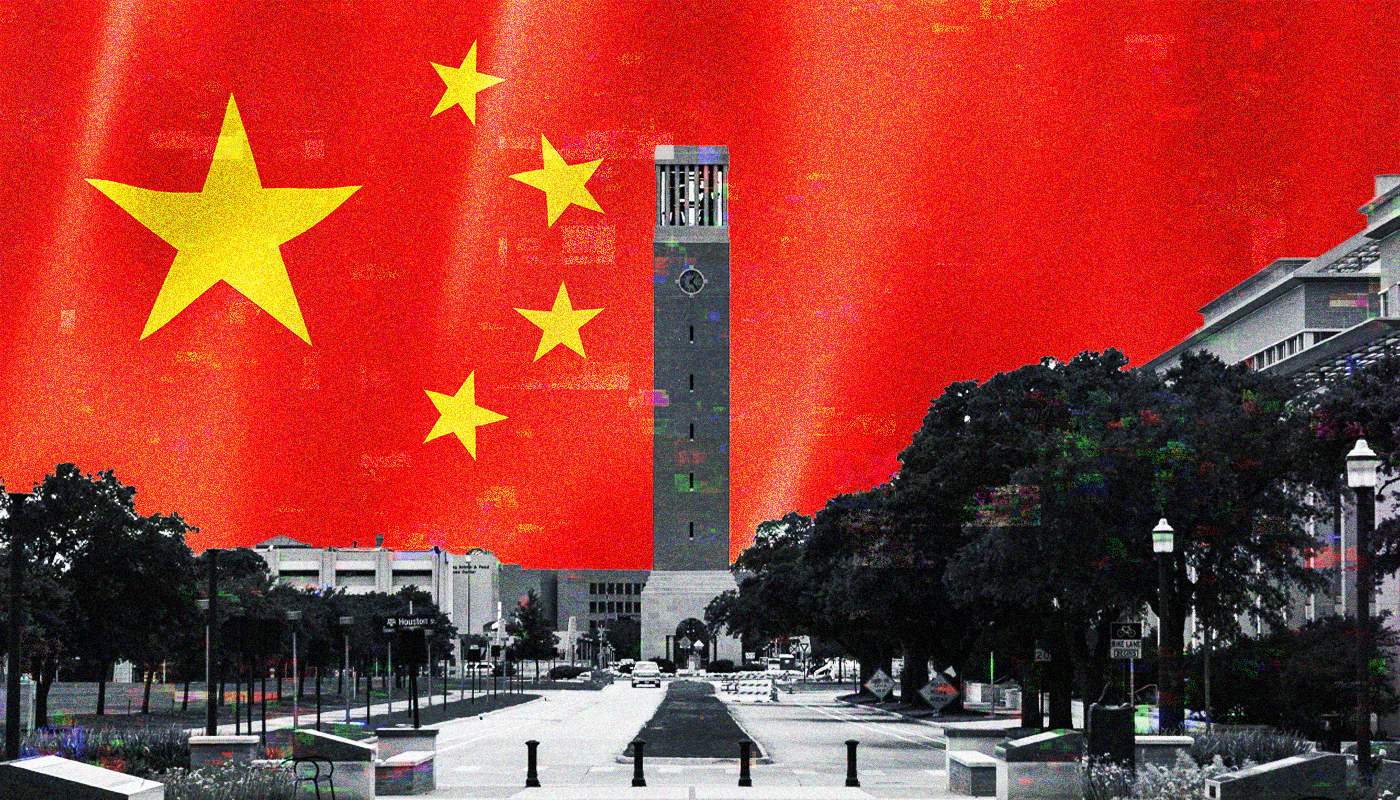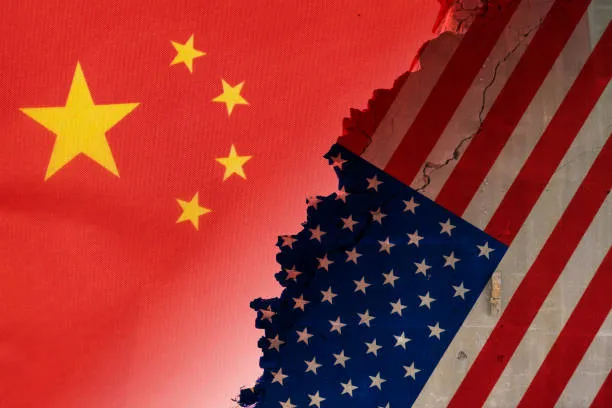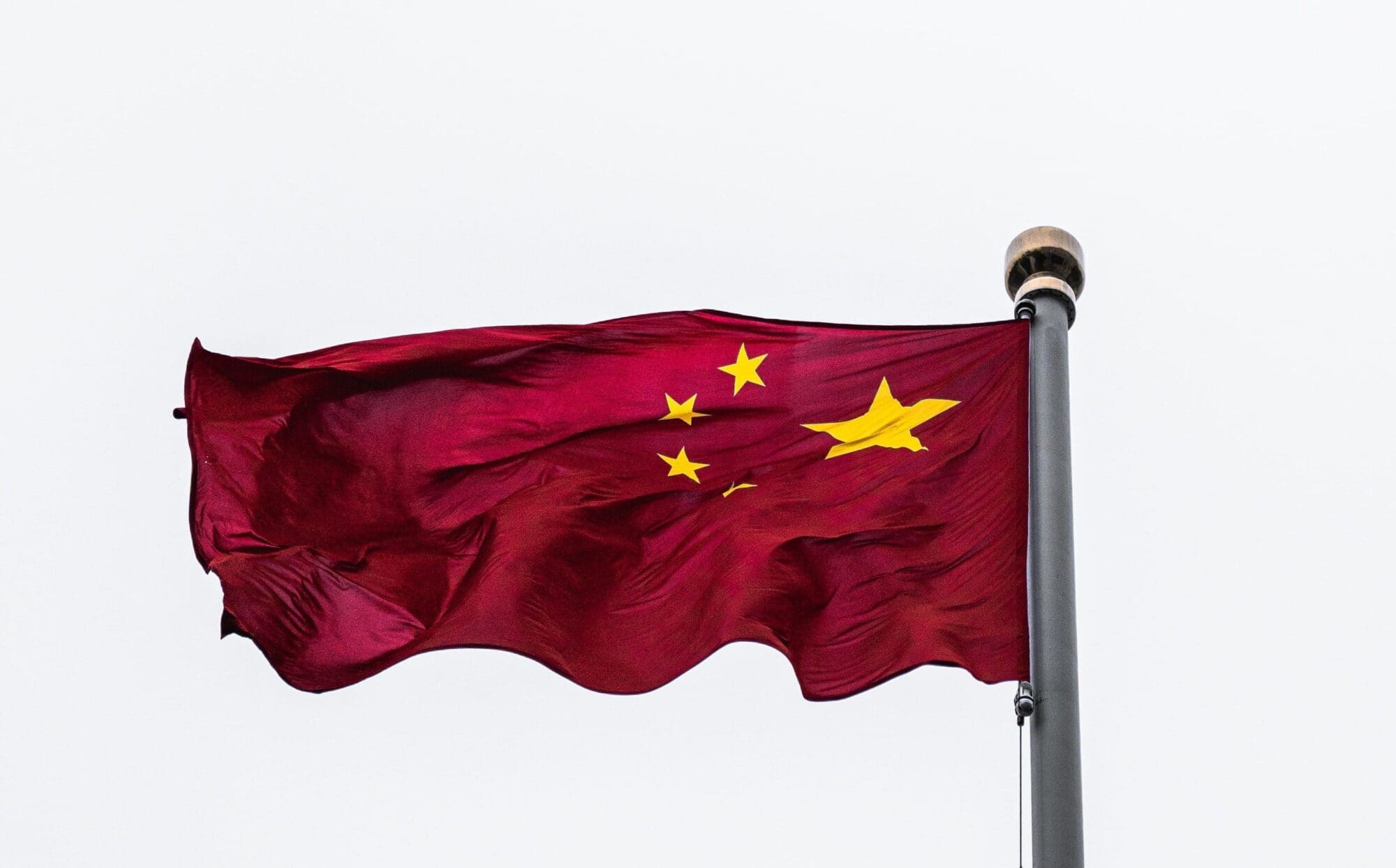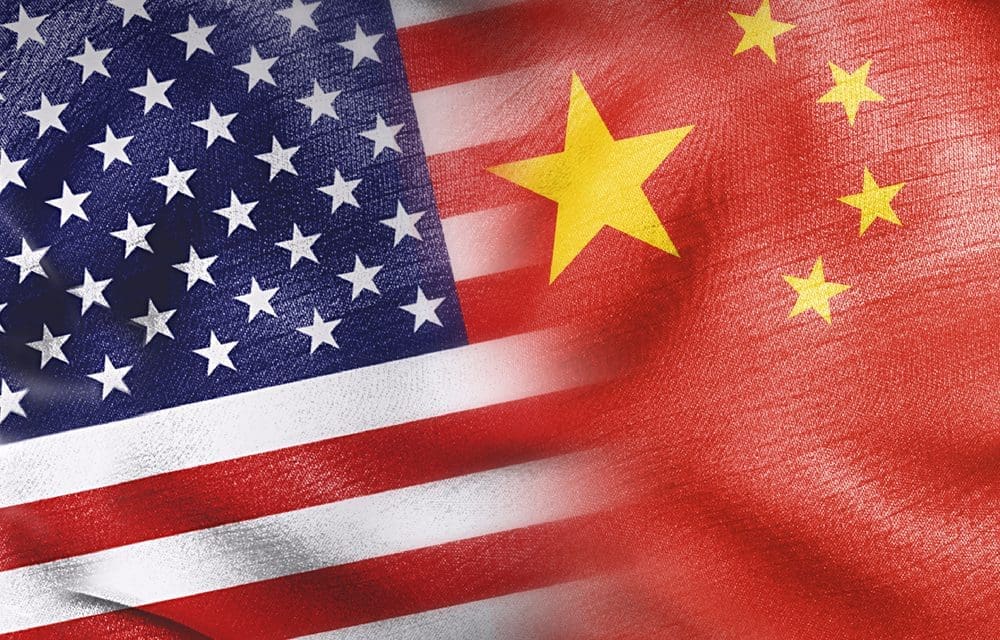As Texas Scorecard previously reported, Chinese language and cultural programs, known as Confucius Institutes and Confucius Classrooms, are one of the most widespread tools used by the Chinese Communist Party (CCP) to influence higher education around the world, but especially in the United States.
These trojan horses of CCP influence reached into many Texas universities and school districts for years throughout the state, from high profile universities like Texas A&M to campuses like University of Texas at Dallas. Although it has been obscured, rebranded, and changed over the years, this Confucius network still exists.
To gauge the CCP’s influence in Texas educational institutions, it is necessary to go back to when these beachheads were established.
Texas A&M University
Aggieland was among the first Texas universities to birth a Confucius Institute. In 2007, Dr. Ed Davis (then-interim president of Texas A&M) signed an agreement with Xu Lin, the chief executive of the Confucius Institute Headquarters in China. This agreement was obtained via an open records request by the National Association of Scholars (NAS), who then published the responsive records in their online database.
This agreement established the Confucius Institute at Texas A&M, with Dr. Randy Kluver as Director. It stipulated that Hanban—the supervisory body of CI with CCP connections—would “provide multimedia courseware and other teaching materials, supplementary materials, and audio-visual materials authorized by the… Headquarters, and to authorize the use of each online course offered by the Institute.”
Furthermore, Hanban would provide $100,000 to A&M as a “start-up fund” for the first year of the Institute’s operation, as well as 3,000 volumes of books and teaching materials. Hanban also promised to pay the salaries of two Chinese instructors which they would select and send to the Institute.
This agreement was valid for five years, and it was renewed in 2013, when a continuation agreement was signed between then-president R. Bowen Loftin and Xu Lin from Hanban. In this document, Kelly Kleinkort was listed as the Director of the Confucius Institute. The exact financial transactions, which took place between the parties over the course of the Institute’s existence, have been requested but were not released before publication. However, the continuance agreement does acknowledge the flow of funds from Hanban:

Per the original agreement signed in 2007, Texas A&M’s Confucius Institute partner was Ocean University in China.
The Australian Strategic Policy Institute keeps a database of all Chinese universities with ties to the Chinese government, and categorized Ocean University as a medium risk institution. It is overseen by the Chinese Ministry of Education and was given secret security credentials in 2017. Ocean is also a member of the Ministry of Education’s “Double First Class University Plan,” an initiative which seeks to bolster the prestige of Chinese universities on the world stage.
There’s a military connection as well. Ocean University collaborated with the Chinese navy on various research projects relating to defense development, and has signed various agreements to that effect.
Ocean also has connections with various military-civil fusion institutes—organizations which serve to promote the CCP’s aim of radically empowering their military by supplying it with technological and industrial innovations from various economic sectors. The U.S. State Department has issued warnings about the CCP’s plans for Military-Civil Fusion and how they exploit researchers in institutions around the globe.
In 2018, the Confucius Institute at Texas A&M was closed after the continuance agreement expired, per communications between then-President Michael Young and Hanban. These were obtained by the NAS.
President Young also sent a letter to Ocean University, where he expressed his regrets for the closure of the Institute. However, he reiterated a desire to deepen the relationship between Texas A&M and Ocean University, through research projects, joint degree programs, and student exchange programs:

Upon receipt of this news, Ocean University’s President, Yu Zhigang, wrote to President Young, saying that he was “shocked and confused” by the announcement. He urged Young not to cave to “political influence” or heed accusations made against the Institutes in the U.S., and confirmed his university’s desire to maintain their relationship with Texas A&M.
Previously, Texas Scorecard reported on investigations launched by the Department of Education under the Trump administration into several universities, including Texas A&M. In 2019, a notice in the Federal Register outlined this investigation and a request for records of gifts from foreign entities. Just to name a few, these entities include the People’s Republic of China, Huawei Technologies, ZTE Corp., and Hanban.
Both Huawei and ZTE have ties to the Chinese government. Huawei has been accused of cyber espionage by the United States and other Western countries, due to their location in Chinese jurisdiction. ZTE is a Chinese company whose leadership has direct ties to the Chinese government. Furthermore, ZTE’s American subsidiary is located in Richardson, Texas. Both Huawei and ZTE have been blacklisted as U.S. national security threats by the Federal Communications Commission (FCC).
The infiltration doesn’t stop there.
University of Texas at Dallas
Like A&M, UTD doesn’t have a Confucius Institute anymore. A review of the institutions records, though, show they have merely rebranded the effort.
The Confucius Institute at the University of Texas at Dallas (UTD) was also established in 2007. The agreement signed by President David Daniel of UTD and Qiao Hong of Hanban is very similar to the document signed at Texas A&M: Hanban is responsible for providing teaching materials, $100,000 as a start-up fund, 3,000 books and instructional resources, and one or two Chinese teachers. Initially, the Institute was jointly funded by UTD and Hanban, with the hopes of becoming financially self-sufficient at some point in the future. Unlike the Texas A&M agreement, this document contains a clause stipulating that the arrangement may be terminated “if an act of UTD severely harms the image and reputation of the Confucius Institute.”
The Confucius Institute partner university in this initial agreement was Three Gorges University. Not much is known about them, except that it was approved and works closely with China’s Ministry of Education. It has been presented with awards and authorizations by various branches of the Chinese government, and also hosts numerous research centers and laboratories which are likewise controlled by the Ministry of Education.
In 2012, after the original agreement expired, UTD signed another agreement to continue their Confucius Institute, this time with Southeast University (SEU) in China. According to the implementation agreement, SEU would be responsible for providing several instructors and teaching materials, supplemented with further aid from Hanban.
According to the aforementioned Australian Strategic Policy Institute database, SEU is designated as high risk, and has been granted secret security credentials, allowing it to participate in classified defense research projects. In fact, SEU is one of the most involved universities when it comes to conducting defense research.
In 2016, SEU signed an agreement between the Ministry of Education and the State Administration for Science, Technology and Industry for National Defense (SASTIND), a Chinese government body responsible for providing equipment and technology for the Chinese military apparatus. SEU also has connections to cyberespionage, with ties to the Chinese intelligence agency and the People’s Liberation Army, as well as numerous relationships with state-owned defense corporations.
In 2019, UTD closed their Confucius Institute, citing their financial independence, as well as their desires to craft new bilateral agreements with their Chinese counterpart, Southeast University. In fact, then-president Richard Benson wrote in a letter to Hanban and SEU that UTD’s “newly created UT Dallas Center for Chinese Studies will have the responsibility for continuing and expanding [their] engagements with Southeast University and will also have the responsibility of advancing [their] curricular offerings in Chinese language, history, and culture.”
In response to the closure, the President of SEU asked that UTD “ton[e] down the closing event to the utmost of [their] power.” He also confirmed that he would like to see new agreements and further collaboration between the universities in the future. Hanban also responded to the president’s letter by asking UTD to “protect the Confucius Institute’s reputation.” Furthermore, the letter confirms that there are 26 Confucius Classrooms which were affiliated with the UTD Confucius Institute. Some of these may have been terminated as well, or transferred to other host institutions.
The full extent of the operations of the UTD Confucius Institute and its aftermath may never be fully revealed. Texas Scorecard requested records belonging to the Confucius Institute and communications between its directors, hoping to shed some light on its activities. On July 18, 2022, the University appealed to Texas Attorney General Ken Paxton, in an attempt to withhold the records. A decision is still pending.
Ultimately, although the termination of the Confucius Institute at UTD marks the end of its relationship with Hanban, there are still clear connections between UTD and China’s Southeast University.
The UT Dallas Center for Asian Studies, which was intended to be the Confucius Institute’s replacement, serves much of the same purpose as the original institution. The founder of this center, Dennis Kratz, was the founder of the original Confucius Institute, and associate director Ming Dong Gu was the director of the Confucius Institute.
The center also has an advisory council featuring many prominent Chinese nationals, including the Vice President of the Beijing Foreign Studies University. This university is directly controlled by China’s Ministry of Education with many research centers, and is a member of the previously mentioned Double First Class University Plan.
Another council member, Huiyao Wang, is the founder of a Chinese non-governmental organization called the Center for China Globalization think-tank. Several people who sit on the board of this organization are former members of the Chinese government.
This evidence suggests CCP connections to Texas universities have not been severed; just redirected.
And the evidence continues to pile up.
University of Texas at San Antonio
The next Confucius Institute to be established in Texas was at the University of Texas San Antonio (UTSA) in 2009. The agreement signed between Hanban and UTSA President Ricardo Romo is similar to the agreements previously examined, with some differences.
First, this document contains a clause which specifically requires UTSA to abide by the Confucius Institute Constitution and Bylaws, respect cultural custom, and follow applicable U.S. and Chinese laws. The resources provided by Hanban to this Institute are similar to those provided to UTD and Texas A&M, although in this document, Hanban pledges to provide $150,000 in start-up funds. Additionally, the agreement may be terminated should UTSA “severely harm the image and reputation of the Institute.”
According to another agreement between the universities, Hanban appears to play a much larger role in this particular Institute. This agreement outlines all of the resources which the Confucius Institute may receive from Hanban, including a multitude of books, audiovisual materials, and equipment. It also specifically states Hanban will conduct periodical evaluations of the Institute and its activities.
The partner university in this agreement was the University of International Business and Economics (UIBE). It too has ties with China’s Ministry of Education. The members of its Board of Trustees dating back to 1989 included representatives from various Chinese government ministries, the State Council, and the Bank of China. Furthermore, current administrators of the university hold leadership positions in the university’s branch of the Communist party.
The signed cooperation agreement describes the relationship between UTSA, UIBE, and the new Confucius Institute. Aside from typical CI activities, this program includes a unique feature: “short term seminars for United States government officials and business executives.” The exact nature of these seminars are not revealed, but they include “a series of lectures on the Chinese economy, official visits to appropriate Chinese government entities, economic development zones and famous enterprises, and opportunities to communicate and interface with Chinese enterprises and entrepreneurs.”
Whatever these seminars may entail, they definitely exceed the boundaries of mere Chinese language instruction and cultural immersion.
Furthermore, there are extra restrictions on the lessons that can be taught by this particular Institute at UTSA; specifically as it relates to China’s relationship with Taiwan, the island nation America has promised to protect from Chinese invasion. In direct suppression of free speech, the agreement specifically requires the UTSA Confucius Institute to comply with the “One-China Policy.”

Active for ten years, the Confucius Institute at UTSA ended in 2019. In a letter to the president of UIBE, the UTSA Vice Provost for Global Initiatives, Lisa Montoya, wrote that “after ten years of grant-funded support for the Confucius Institute, UTSA is now ready to graduate its China-related language and culture programs into a more robust environment, UTSA East Asia Institute…” A letter by UTSA President Taylor Eighmy was simultaneously sent to Hanban, where he notified them of the termination of their Confucius Institute. He further noted that UTSA would continue to pursue a traditional agreement with UIBE in the future.
Hanban’s response to the closure was similar to its previous reactions, asking UTSA to “protect the Confucius Institute’s reputation.” Furthermore, the executive deputy director-general inquired into the fate of three Confucius Classrooms associated with the Institute at UTSA. UTSA denied that any Confucius Classrooms were currently affiliated with the Institute, although they admitted that three classrooms were unofficially established and ended several years prior.
President Eighmy followed up on the letter sent to UIBE, reiterating UTSA’s intention to craft a traditional agreement with its Chinese partner. He also extended an invitation to UIBE’s president to visit UTSA during an upcoming trip to the United States. UIBE’s president reciprocated with an invitation for UTSA faculty to teach at the university’s summer school, and agreed to discuss further cooperation between the two institutions during his visit.
Whether this visit actually took place is unknown as of publication. What we do know is that CCP infiltration appears to be ongoing here, also.
According to UTSA, the Confucius Institute was replaced by their own East Asia Institute, which was led by the former Confucius Institute director, Wan Xiang Yao. However, this went through another rebranding job in 2019, and its responsibilities were transferred to the “Division of Global Initiatives and other units, such as the Department of Modern Languages and Literatures and Institute for Texan Cultures.” The exact nature of these relationships are still unknown, pending forthcoming records from UTSA.
Prairie View A&M University
In 2013, an agreement was signed between Hanban and George Wright, the president of Prairie View A&M University (PVAMU), to establish a Confucius Institute on campus. The agreement mirrors many of the other agreements examined thus far, with Hanban providing $150,000 in start-up funds and teaching materials, plus annual funds as needed.
PVAMU also signed an implementation agreement with their partner university in China, Xi’an International Studies University.
A Google translation of Article IX of Xi’an International Studies University’s constitution enumerates the school’s philosophy as follows:
“Hold high the great banner of socialism with Chinese characteristics, adhere to the guidance of Marxism-Leninism, Mao Zedong Thought, Deng Xiaoping Theory… serve the governance of the country by the Communist Party of China, serve the consolidation and development of the socialist system with Chinese characteristics, serve the reform and opening up and the socialist modernization drive, [and] fully implement the party’s educational policy…”
This university also has close ties to China’s Ministry of Education. According to its website, it “has been awarded the honorary titles of ‘Safe Campus’ and ‘Civilized Unit Model’ in China’s Shaanxi Province.”
The University of Technology in Sydney states this “national civilized city” (or unit) concept is “an evolving policy regime based on CCP thought work… [which] demonstrates the party’s continuing agenda to guide the socialist ideological development of the urban process in China.”
The current state of PVAMU’s Confucius Institute is unknown as of publication. It was allegedly shut down along with the one at Texas A&M – College Station, at the suggestion of Texas congressmen McCaul and Cuellar. However, Texas Scorecard is awaiting official records or communications confirming the termination.
Texas Southern University
The Confucius Institute at Texas Southern University (TSU) was established in 2013 per a standard agreement signed with Hanban. Like the agreements previously discussed: the activities of the Institute must follow the Confucius Institute Constitution and Bylaws, respect cultural custom, and not contravene U.S. or Chinese law. Additionally, Hanban pledged to provide 3,000 books, teaching materials, a $150,000 startup fund, plus annual funds as necessary.
The partner university in the agreement was Beijing Jiaotong University (BJTU) in China.
According to the Australian Strategic Policy Institute database, Beijing Jiaotong University is classified as a medium risk institution with secret security credentials, allowing it to work on classified research projects. BJTU is a member of China’s Ministry of Education’s Double First Class University Plan, and is overseen by the Ministry of Education, Ministry of Transport, Beijing Municipal Government, and other state entities. BJTU has one defense laboratory connected to the Ministry of Education, and has signed cooperation agreements regarding participation in military-civil fusion.
Documents obtained by NAS also made clear TSU was being used as a super spreader for the CCP’s tentacles. TSU had a Confucius Classrooms program that operated under its Confucius Institute.
The director of the Institute, Roger Hart, sent an email to inform other schools about the program. He explained that Hanban would provide teachers, startup funds, educational materials, and even exchange program opportunities. In terms of financial support, Hanban would provide $10,000 in startup money, along with up to $20,000 in Chinese educational materials, and up to $10,000 in annual funds.
The TSU Confucius Institute had a contract to establish a Confucius Classroom at Global Learning Village, a public school in Houston. This school closed in 2018, but whether the Confucius Classroom was terminated or transferred to another school is still unknown.
When NAS reached out to TSU about the current status of their Confucius Institute, they claimed all ties were severed in the summer of 2018 “due to the unstable relationship between the U.S. and Chinese governments.” They added that a university-funded Chinese institute was running all Chinese language programs and activities.
Texas Scorecard has requested official records and communications confirming this termination, but that request is still pending.
Conclusion
The history of Confucius Institutes at Texas universities is long.
Many, if not all, of these Institutes appear to have been officially terminated. However, the shadow of Chinese infiltration in Texas higher education is still very present. Although official agreements with Chinese universities vis-à-vis Hanban are no longer in effect, many of these universities have drafted new agreements with their former Chinese partners, and in some cases, connected with other Chinese universities that themselves have disconcerting relationships with China’s military and other governing institutions.
The Confucius Institute network infiltration of the U.S. public education system largely succeeded in the Lone Star State. Even though the original connections with universities have dried up, many new – and perhaps more concerning – connections are being formed.
In part three of this investigative series, Texas Scorecard takes a closer look at this CCP infiltration into elementary, middle, and high school classrooms across Texas.
No ads. No paywalls. No government grants. No corporate masters.
Just real news for real Texans.
Support Texas Scorecard to keep it that way!





